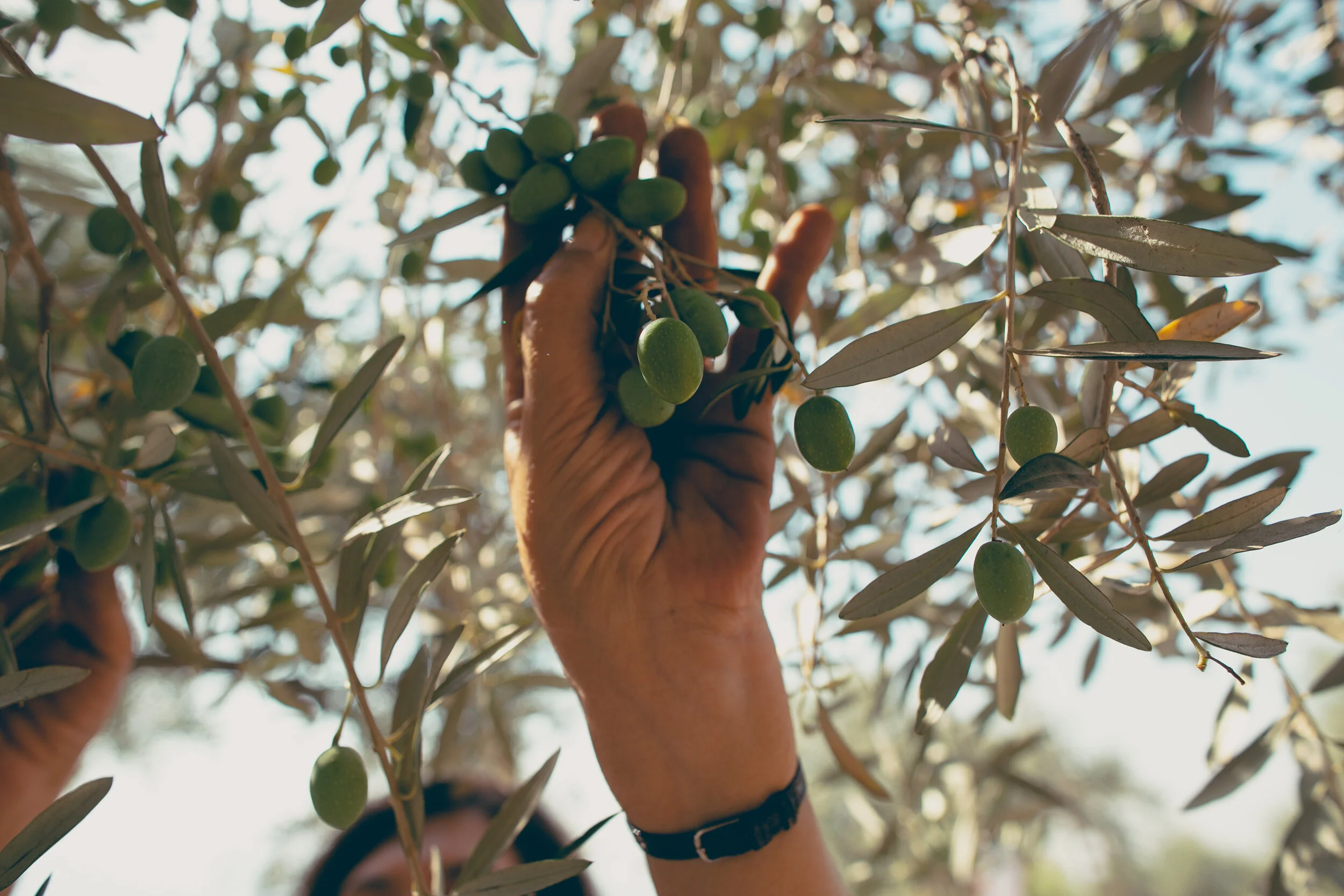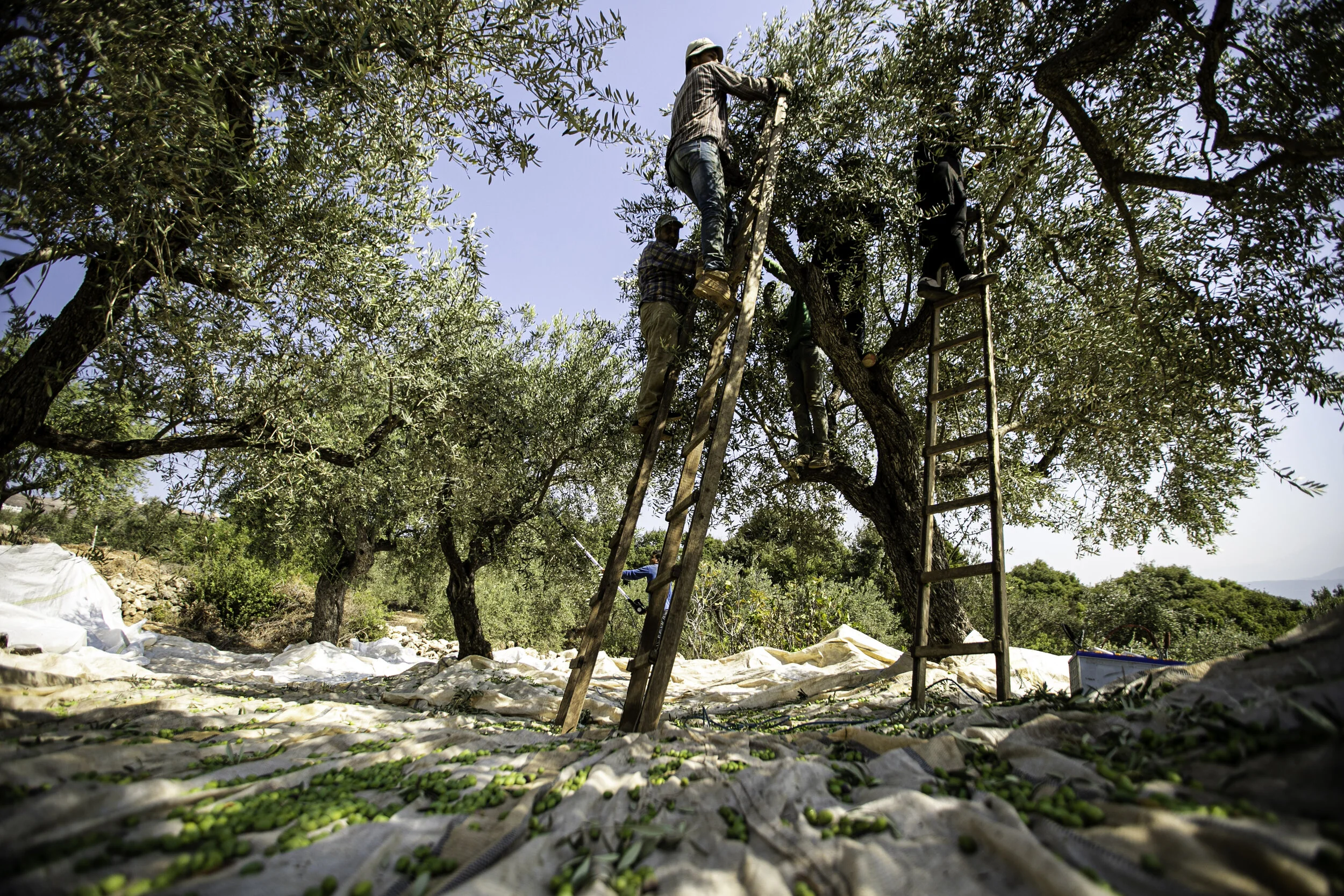HOME / HOW OUR OLIVE OIL IS MADE
HOW OUR BAAL OLIVE OIL IS MADE
The annual olive harvest takes place in the Fall of each year. The start date of the harvest is an issue of much debate based on many factors such as rainfall, the weather to come, and the appearance of the olives. The start date of harvest affects the taste, color, and yield of the olive oil.
Once the harvest date is decided on we gather in the early morning at our family's 200-year old olive groves in the north of Lebanon and carefully begin the process of picking our olives by hand, one-by-one. It's a family affair.
A tarp is set up under the olive trees to catch any olives that may fall while picking from ladders high above. Picking starts at sunrise to escape the intense Mediterranean heat that comes later in the day. The heat impacts both the pickers and the olives.
We tediously sort through the harvested olives again and again, removing twigs, leaves and setting aside bruised olives to use in our BAAL Olive Oil Soap and Soap Flakes. Olives that may have been affected by the fruit fly are composted.
Mere hours after the olives are picked, we transport them to our local olive press to be immediately pressed. It is essential to press the olives within hours of harvest to ensure that the olive oil is extra virgin and of the freshest and highest quality. Pressing the olives shortly after harvest minimizes the oxidation of the olive oil. This is important because it decreases the acidity levels of the olive oil, keeping levels of good polyphenols (anti-oxidants) high. This process is repeated each day until all our groves are harvested.
After pressing our olives, they immediately go into an airtight stainless steel vat — we ensure no oxygen is exposed to the olive oil during this process to prevent oxidation. The unfiltered olive oil then sits for several months to allow the naturally occurring sediments to fall to the bottom, so that when we bottle the olive oil (again using the most modern machinery to ensure the olive oil is not exposed to oxygen) we are bottling the olive oil with as little sediments as possible for a crisper, fresher and cleaner taste and color!












